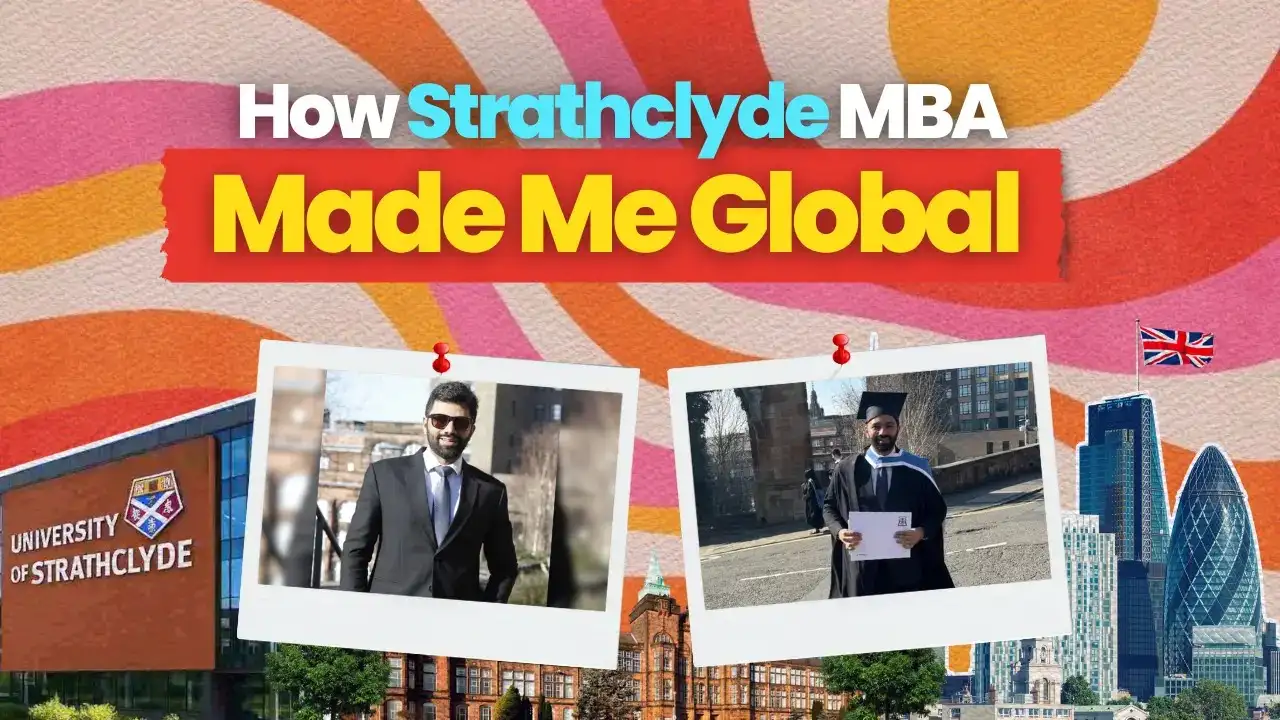Student Reviews
A Healthcare Scientist's Path from India to the NHS

I am Mohi Dave, a healthcare scientist in cancer genomics at The Royal Marsden NHS Foundation Trust. I took my master’s in Genomics from the University of Sheffield. I spoke with Leap about my journey for their student expert series—Indians who had studied abroad recently and are still in that country pursuing their dreams—because I want to help others wanting to take the same career path that I took.
Q. Tell us about your background
Ever since I was in school, I kind of knew that I wanted to do something in biology because I was always interested in genetics, and that's how I planned my journey from 10th grade. I went to Bangalore for my undergrad and did my bachelor's in life sciences, majoring in genetics, biochemistry, and biotechnology. After that, I did a few internships in genetics in India. That's when I decided to apply for a master's in genomics in the UK. Luckily, I found a job in the same field, and I work in the NHS as a healthcare scientist in cancer genomics.
Q. How did you decide where to go and study? What was the process like?
I also have some extended family in the UK, and when I visited as a child, I was fascinated by the British architecture. It left such an impression that I told myself I’d love to live there someday.
The application process in the UK was pretty straightforward. I also used to email the professors were very excited, and they would discuss further about the program, which I liked.
So I think my main source of information was from networking and talking to the professors, and speaking to alumni, and how they found the course. So that's sort of how I narrowed down my list of universities.

Q. Why did you choose the University of Sheffield for your master’s in Genomics?
Genomics is quite an emerging field. Although it's expanding rapidly in India, I felt that the educational and job opportunities were still somewhat limited. That’s why I had always considered pursuing further education abroad.
I chose the University of Sheffield after doing a lot of research into the course itself. What stood out to me was that it was the only university offering a work placement as part of the program. As a student, you get to work on real NHS patient cases, which I found incredibly appealing, especially since I knew I wanted to work in the NHS after graduating. The work placement program offered by my university was incredibly valuable. The hands-on experience I gained through that directly aligned with what I’m doing in my current role. I can confidently say that the skills I developed during that placement played a huge part in helping me secure my job.
Q. What was it like to study there?
At first, it was really difficult. I am from Mumbai and I was so used to the traffic and the hustle and bustle of Mumbai that the silence at first night here really was a new experience for me. And so initially, it does take some time to adjust to a completely different lifestyle. I started making friends by going to different types of clubs and activities. That's the good thing about universities in the UK. They offer a lot of different varieties of extracurriculars. Like, there was a society simply for tea. Like they would just get together and have tea and talk about random stuff and hang out.
In my case, I randomly started attending salsa dancing classes and became an enthusiast unexpectedly, which was quite a good experience.
Of course, academics are a big part of your time there, but if you focus only on studying, it can get quite isolating. It’s really important to meet people and build a support system, especially when you’re far from home.

Q. Can you tell us about your expenses? How did you finance it?
The student accommodation was provided by third-party companies rather than the university itself, and I found those options to be slightly more expensive. My rent ranged between £400 to £450 per month (approximately ₹42,000 to ₹47,250).
To manage my expenses, I took up part-time work. It usually involved long shifts spread across a few days, which helped me earn some additional income. I was also partially self-funded. Fortunately, living in student accommodation came with its advantages—it made it easier to make friends, share groceries, cook together, and even divide up chores like cooking and cleaning.
The total tuition fee for the course was around £24,000 to £25,000 (approximately ₹25,20,000 to ₹26,25,000), and it was a one-year program. I managed to fund my education through a combination of self-funding, an educational loan, and part-time work to cover day-to-day expenses.
Q. How did you land your job? Any tips?
When I started applying for jobs, I was fortunate to secure one from my very first interview. I am also aware that it might not be the case for most people.
One of the most important things when applying for jobs is understanding what you bring to the table, how your skills align with the job description. They will give you a list of skills that they require, and you need to show how you match those.
Since I work in healthcare, I found the NHS Jobs website to be incredibly useful. It regularly posts openings for a wide range of healthcare roles. In addition to NHS Jobs, I also used LinkedIn to connect with potential employers and professionals already working in the field. It helped me get a better sense of the job market and industry expectations. While I didn’t apply through many other platforms because I was specifically aiming for a job within the NHS, I’d say LinkedIn is a great tool, especially if you set up job alerts tailored to your desired role.

Q. Do you have any final thoughts?
When you're going to a new country stressful to think about how you're going to get a job and how much it is going to pay, whether you can survive all of this and pay the loan back. So while I completely understand the stress of that because I've been there, I still think it's important to learn new things in your field, rather than simply going after the money that it pays. So make sure you're taking complete advantage of all that the country has to offer, and the rest will follow.
Disclaimer: This article was created in collaboration with the University of Sheffield.



